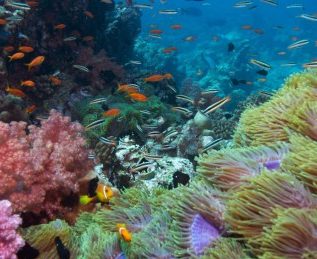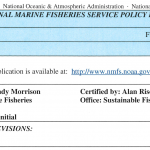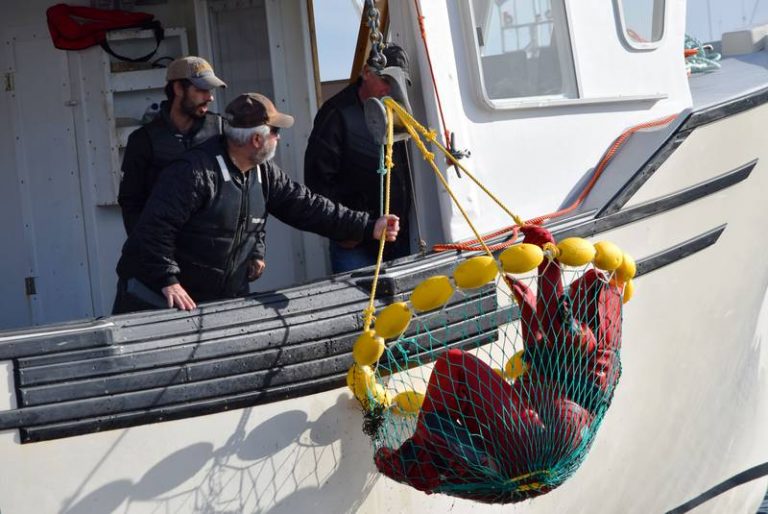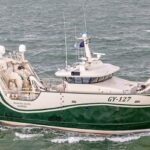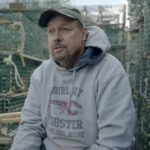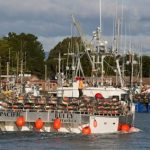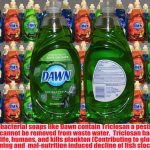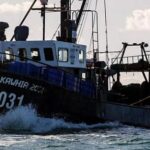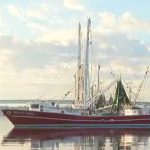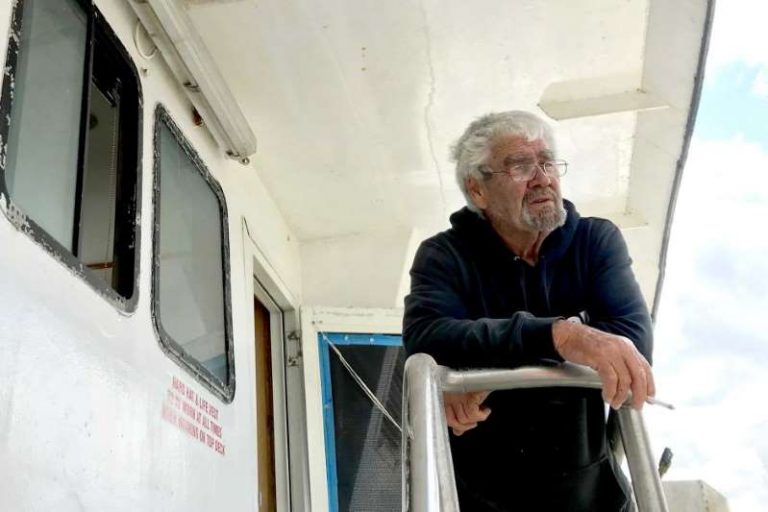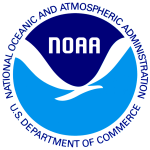Tag Archives: Plankton

FISH-NL renews call for halt to seismic testing – ‘If plankton isn’t protected you might as well say goodbye to the fish’
The Federation of Independent Sea Harvesters of Newfoundland and Labrador (FISH-NL) is once again calling on the Canada/Newfoundland and Labrador Offshore Petroleum Board (C-NLOPB) to suspend offshore seismic work in light of new research that reveals plankton productivity has plunged. The research by the federal Department of Fisheries and Oceans (DFO) doesn’t link the dramatic and persistent drop in plankton to seismic activity, but other research has found the intense acoustic signals may damage the critical elements of the food chain. “It’s highly coincidental that as seismic activity ramped up plankton productivity plunged,” says Ryan Cleary, President of FISH-NL. “Seismic activity may be necessary for offshore oil and gas development, but it must not come at the expense of our wild fisheries and marine ecosystem — cutting off our nose to spite our face.” >click to read<10:43
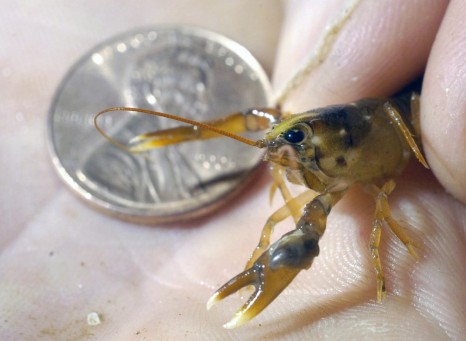
A mystery is born: Where are all the baby lobsters?
Biologists and lobstermen are growing increasingly worried that the state’s most valuable fishery, which in recent years has boasted record volume and value and accounts for more than 80 percent of Maine’s fishing profit, is about to go bust, a doomsday economic scenario some call the curse of the “gilded trap.” At the center of their concern: The number of baby lobsters found in the Gulf of Maine continues to fall. “We call it the great disconnect,” said Joshua Carloni, New Hampshire’s state lobster biologist. “And as you can imagine, it has us concerned.”,,, The Seabrook tows found a decline in copepods – tiny planktonic crustaceans that are most likely a staple of the lobster larval diet click here to read the story 08:14
Fish in the Northwest Atlantic Are Going Hungry – New Science From Maine’s Department of Marine Resources Helps To Explain Why. click here to read the article
Ocean Pasture Plankton Collapse Cataclysmic Say German Media – Russ George responds
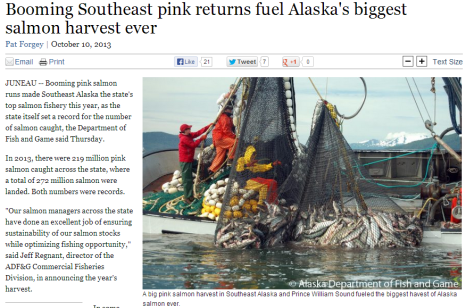 DW reports (April 2016): Food chains represent the greatest interdependency within the webs of life. The marine food chain, for instance, is essential for oceans – and depends on plankton. But environmental changes and human activities may be threatening plankton – and therefore all marine animals. (Editors note: Indeed the most favoured explanation for the collapse of plankton that make up vital ocean pastures is the impact of high and rising CO2 which at once starves the ocean of vital nutrients while acidifying ocean waters such that microscopic life, the larva of fish and shellfish as well as plankton cannot thrive. Proven Technology To The Rescue. Here’s what happens when a few tens of thousands of dollars of mineral rich dust is spread in infinitesimal amounts on a dying ocean pasture. The pasture blooms and grows an abundant crop of plankton that plankton feeds all of ocean life and in the case of my demonstration project grew hundreds of millions of additional salmon. IT JUST WORKS! Read the post here 19:35
DW reports (April 2016): Food chains represent the greatest interdependency within the webs of life. The marine food chain, for instance, is essential for oceans – and depends on plankton. But environmental changes and human activities may be threatening plankton – and therefore all marine animals. (Editors note: Indeed the most favoured explanation for the collapse of plankton that make up vital ocean pastures is the impact of high and rising CO2 which at once starves the ocean of vital nutrients while acidifying ocean waters such that microscopic life, the larva of fish and shellfish as well as plankton cannot thrive. Proven Technology To The Rescue. Here’s what happens when a few tens of thousands of dollars of mineral rich dust is spread in infinitesimal amounts on a dying ocean pasture. The pasture blooms and grows an abundant crop of plankton that plankton feeds all of ocean life and in the case of my demonstration project grew hundreds of millions of additional salmon. IT JUST WORKS! Read the post here 19:35
Deep Sea Fishing Threatens to Wipe Out a $150 Billion Carbon Sink
 Marine life in the high seas soak up an amount of carbon equivalent to 30 percent of the US’s annual emissions. This carbon-sequestering service is worth about $148 billion a year, according a new study from the Global Ocean Commission. At the same time, increased fishing activity threatens the whole process, according to the researchers. “Most would not be fishing the high seas without subsidies,” Sumaila told me. Read the rest here 10:13
Marine life in the high seas soak up an amount of carbon equivalent to 30 percent of the US’s annual emissions. This carbon-sequestering service is worth about $148 billion a year, according a new study from the Global Ocean Commission. At the same time, increased fishing activity threatens the whole process, according to the researchers. “Most would not be fishing the high seas without subsidies,” Sumaila told me. Read the rest here 10:13
Nation’s ocean scientists meeting at Bigelow Lab on role of plankton
Fifty of the most prominent ocean scientists in the country will come to the Bigelow Laboratory for Ocean Sciences in Maine for a research event about the response of marine plankton to changing ocean conditions. Read more here 13:14
Zooplankton decline reported in North Atlantic
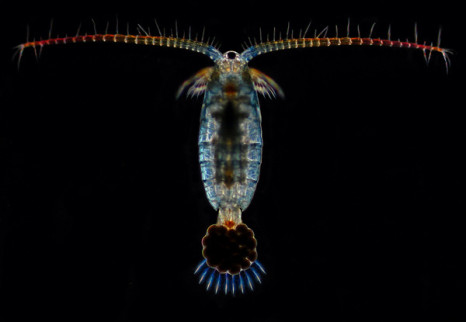 The absence of the normal surge of plankton in the spring is a concern because that’s when cod and haddock and many other species produce offspring, Friedland said. The spring surge also provides the foundation for normally abundant zooplankton levels that have made waters from the Middle Atlantic to New England productive for centuries. more@miamiherald Some articles we posted about this issue here 17:47
The absence of the normal surge of plankton in the spring is a concern because that’s when cod and haddock and many other species produce offspring, Friedland said. The spring surge also provides the foundation for normally abundant zooplankton levels that have made waters from the Middle Atlantic to New England productive for centuries. more@miamiherald Some articles we posted about this issue here 17:47
Climate Change Will Upset Vital Ocean Chemical Cycles, Research Shows
New research from the University of East Anglia shows that rising ocean temperatures will upset natural cycles of carbon dioxide, nitrogen and phosphorus. Plankton plays an important role in the ocean’s carbon cycle by removing half of all CO2 from the atmosphere during photosynthesis and storing it deep under the sea — isolated from the atmosphere for centuries. more@sciencedaily 09:34






